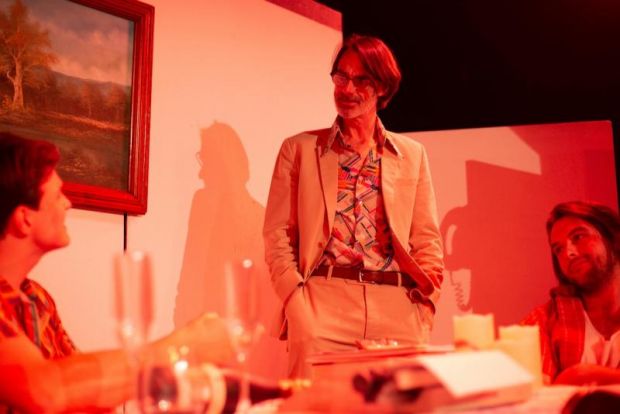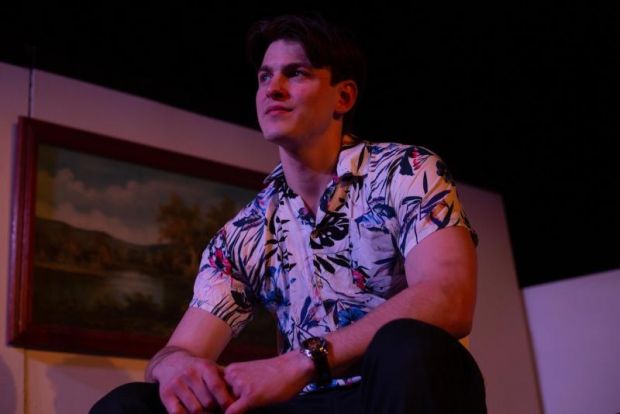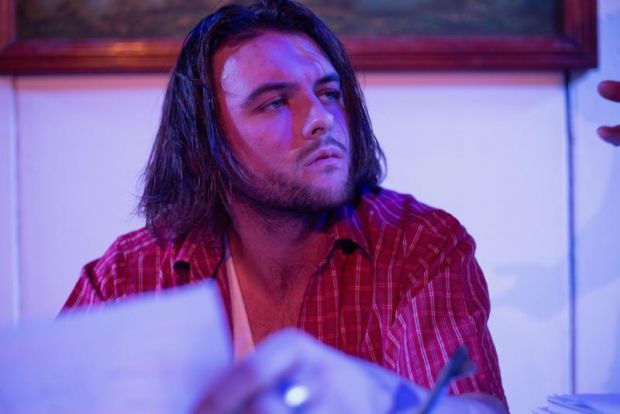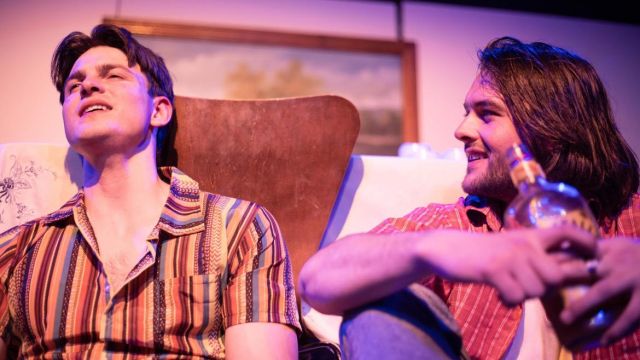True West
This classic work by Sam Shepard was nominated for a Pulitzer Prize for good reason. It still has something to say to modern audiences about the way in which we choose to live, our colonising aspirations, rivalries and definition of success. Whilst this American play ostensibly examines the true nature of the (wild) west, it can also be understood as speaking to the way modern humans choose to live in harmony with or to the exclusion of nature. This exploration of the American Dream is recognisable to Australians, whose history of invasion and destruction is similar. The story through which we have written our identity is a violent one. And, in the hands of Tooker and Golding, the writing of our story is an absurdly funny one.
This play was very well chosen for Golding and Tooker, both as actors and producers. If 2020 derailed their plans on the mainland, Hobart is certainly the winner. These guys are terrific actors.

Golding, as Lee, initially came across as unhinged with great potential for violence. Tooker, as Austen, represented all that was rational and civilised. Their rivalry looks certain to end badly. As the play progresses, the characters morph into reflected images of each other. Tooker, under the influence of alcohol, embraces chaos and rejects convention while Golding’s character becomes the one driven by material success. It still ends badly, but with a lot of humour along the way.
This play has been filmed on a number of occasions and in the hands of different directors and actors, it is possible to emphasise the darker elements or the more humorous. Without sacrificing the former, Golding and Tooker take the second route. There were laughs aplenty. Tooker’s skill in tossing pieces of bread has never been equalled on a Tasmanian stage nor has Golding’s facility with a Four Iron.

Golding and Tooker carried the 90 minute showm with Alex Sangston, recently returning to Tasmanian Theatre, an excellent supporting actor. Skilled practitioner of Alexander Technique and show director, Penny McDonald, was perhaps not the best choice in the other supporting role. As the mother, it would be hoped that her accent was consistent with the other players and that her appearance should augment the absurdist humour or the inherent threat in the situation. The entrance of mother merely delayed the inevitable climax.
The Hidden Theatre (just to the right of the church spire at St John’s Park, New Town) was the ideal location for the show which required an intimate setting. Audience comfort in the motley assembly of lounge chairs turned to discomfort at the proximity of the action. The set worked very well and was dressed with great attention to detail. Management of properties required some skill. The soundscape added significantly to the overall effect. Lighting was also used adeptly to indicate changes in time or mood and to facilitate scene changes.

Golding and Tooker are to be commended on their talent, vision and energy. This is a great play in excellent hands. Trigger warning: we are assured that only one typewriter sacrificed its life for art.
Anne Blythe-Cooper
Subscribe to our E-Newsletter, buy our latest print edition or find a Performing Arts book at Book Nook.

